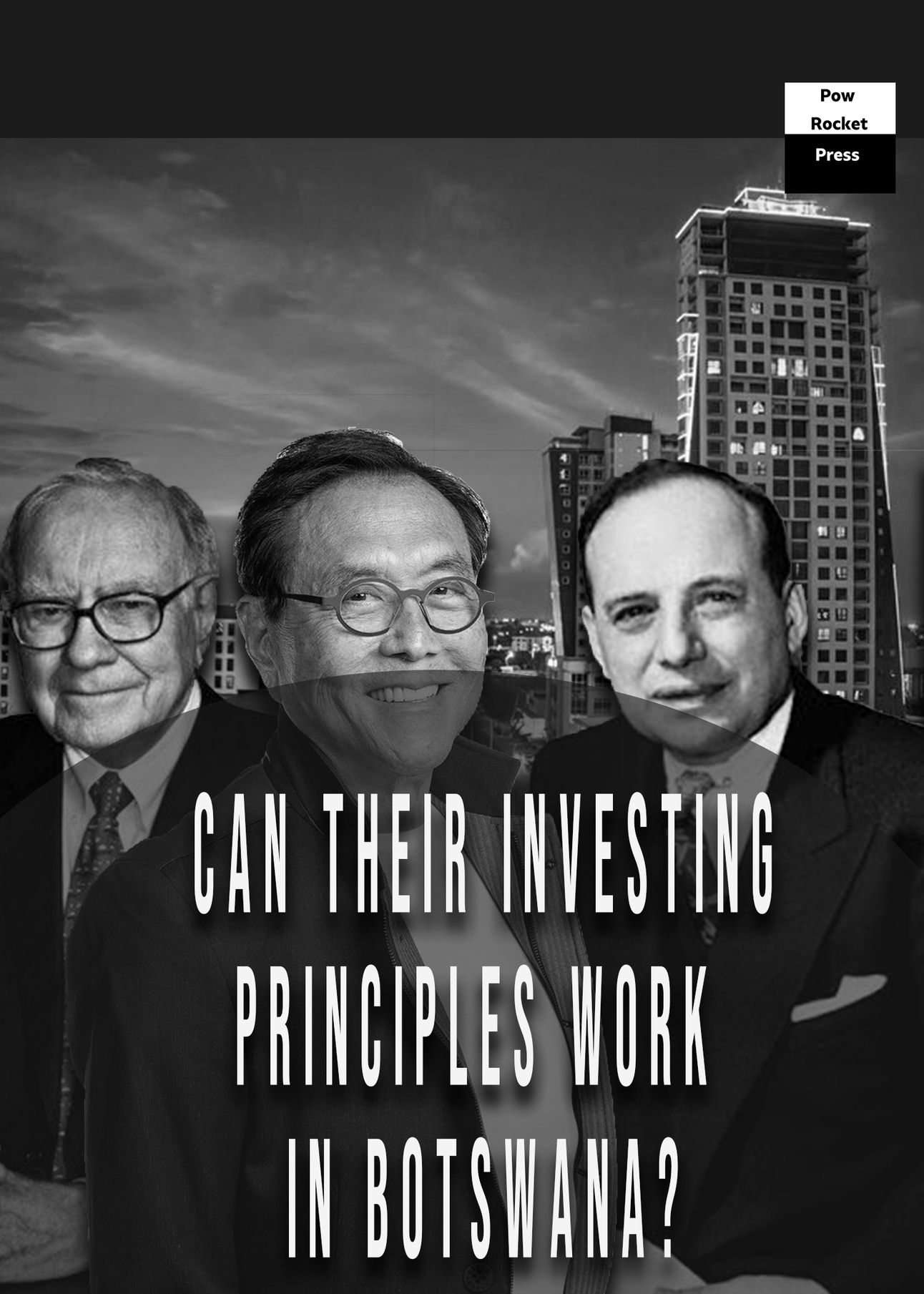
Pow Rocket
Good morning 😃🌞☀️ Let’s get into it!
Have you ever said to yourself when reading investing books, “I don’t think this can apply to this country, it’s easy in the States, not here”?
Well, you’re not alone, I too, and many others, but what if it’s possible to apply those books here?
Well, of course, everything else won’t work because of the tax laws and culture. But I wanted to find out which ones could work in our country and how.
3 books with investment advice that can realistically work in Botswana:
“The Intelligent Investor” by Benjamin Graham
Why it works in Botswana:
Teaches value investing, which is about buying undervalued assets — a principle that applies to local stocks on the Botswana Stock Exchange (BSE), real estate, or even small businesses.
Promotes a long-term mindset and risk management, which is crucial in Botswana, where some markets (like property or equities) may grow more slowly than in developed countries.
You can apply his core ideas, like the margin of safety, when investing in startups, real estate, or buying farmland.
“Rich Dad Poor Dad” by Robert Kiyosaki
Why it works in Botswana:
Focuses on financial education, asset-building, and cash-flow management — all key in a country where formal financial education is limited.
Encourages people to invest in cash-flowing assets (like rental property or small businesses), which are practical and available locally.
Many Batswana already value land and cattle — Kiyosaki’s approach helps structure those assets as businesses.
“The Millionaire Next Door” by Thomas J. Stanley & William D. Danko
Why it works in Botswana:
Based on research showing that wealth is built through frugality, discipline, and smart investment, not flashy spending, very relevant in African cultures where people often face pressure to spend to show success.
Encourages living below your means and investing steadily over time — this mindset works well for salaried employees, SMEs, and even informal sector participants.
Helps reshape the “wealth = lifestyle” mindset that delays financial independence for many.
Key Note:
In Botswana, access to traditional investment vehicles may be limited (e.g., limited stock choices, fewer ETFs, less VC activity), so these books are most useful when you:
Apply their principles to local realities (e.g., investing in goats or poultry instead of tech stocks).
Focus on disciplined saving, business ownership, and understanding how money flows in your market.
So, how do we apply their knowledge in our context?
📘
1. The Intelligent Investor – Benjamin Graham
Core Principle: Buy undervalued assets and focus on long-term safety, not hype.
🟢 Botswana Takeaways:
Look for undervalued local stocks on the Botswana Stock Exchange (BSE). For example, companies with strong cash flows but low market interest.
Apply “margin of safety”: Only invest when the price is well below the asset’s true value — this could apply to buying farmland, old plots, or small struggling businesses.
Don’t chase quick profits. Invest in things you understand — like cattle, poultry, rental rooms, or vending businesses — and hold for the long term.
📘
2. Rich Dad Poor Dad – Robert Kiyosaki
Core Principle: The rich buy assets that put money in their pockets. Not liabilities.
🟢 Botswana Takeaways
Prioritize income-generating assets: backyard rentals, chickens, taxis, or side hustles.
Learn how to manage money, taxes, and debt smartly — many Batswana miss wealth opportunities due to poor financial habits.
Avoid buying a car or iPhone just to “look rich” — focus on buying things that earn you money.
Teach your children about money, savings, and small business early — it’s a long-term game.
📘
The Millionaire Next Door – Thomas J. Stanley
Core Principle: Most millionaires live modestly and build wealth slowly through discipline.
🟢 Botswana Takeaways:
Live below your means: Even if you earn P20,000/month, act like you earn P10,000 and invest the rest.
Build wealth through consistent saving and investment, even in small amounts — e.g., P500/month into a cooperative, money market fund, or livestock.
Wealthy Batswana are often low-key farmers, business owners, or landlords, not people in flashy clothes.
Avoid peer pressure: success is quiet, not loud.
Final Word:
These books teach timeless strategies. The key is to adapt their advice to Botswana’s realities:
You may not find ETFs or tech startups easily, but you can find ploughing fields, small shops, rentals, and stock market gems.
Investing is less about where you are and more about how you think.
